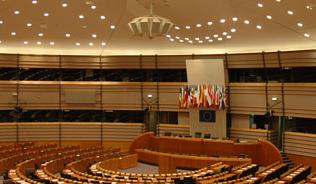On Tuesday 21st May, CHES members and education professionals gathered at UWE, Bristol, to discuss the value of an environmental science education. The day covered the academic journey of an environmental science student from primary to the profession, and included a workshop addressing the employability prospects of environmental science graduates, generating implementable ideas for institutions to enhance student’s employability.
Sarah Lawfull and Jon Cree, Forest School Association (FSA) discussed the Forest Schools programme which advocates for immersive education and creative initiatives to engage young people in nature, allowing them the opportunity to be curious and explore their surroundings. This was highlighted by explaining that children are often intrigued by things in nature, like fungi, and relish the opportunity to touch and engage with them whilst learning their dangers, as opposed to being warned to stay away. Delegates were encouraged to consider their own interactions with nature and early memories of spending time outdoors, illustrating the point that outdoor learning harbours an atmosphere of fun for both children and adults. The importance of outdoor education for Special Educational Needs children and general mental health were also celebrated.
Richard Genn, Peter Symonds College shared his extensive experience in delivering secondary education in environmental science, for which he described as "science with a hint of ethics". In this eye-opening presentation, Richard outlined the benefits of the Environmental Science A-Level, and raised concerns for its future of the A-Level, particularly in removing AS-Levels which poses a challenge to institutions on how best to strengthen the reputation of the A-Level. As we turn this corner in public awareness, Richard questioned which environmental issues we will be tackling, researching, and educating on in the future, and how we will best support those studying and teaching these topics at secondary level.
Piers Wilkinson, Ramping Up Ltd discussed accessibility barriers in the environmental science sector and shared experiences of students with disabilities in environmental education. This opened a collaborative dialogue on what institutions could do to increase accessibility, which Piers highlighted were frequently overlooked, especially with regards to environmental issues. Barriers to inclusion are evident in the lack of accessible fieldwork, particularly for individuals with physical disabilities, which is further exacerbated by a lack of representation in media and publicity for environmental science courses. He advocated for institutions and the sector to update technologies and teaching methods with accessibility in mind, as inclusive action and increased participation benefits both the individuals with disabilities and the sector as a whole.
Dr Georgina Gough, University of the West of England (UWE) presented on embedding sustainability in higher education through the lens of the Sustainable Development Goals (SDGs). As pressure from students is growing on institutions to become more sustainable, analysing actions through the SDGs is a useful tool to identify where universities and courses can be striving for improvement. At UWE, she has pioneered a programme to ensure all degree courses are evaluated in relation to each of the 17 SDGs, highlighting sustainability practices can be improved. Although the initiative is aimed at programme-deliverers, Georgina has found that engaging students is a useful way to begin the process as they have the passion to encourage their school to make positive changes.
Adrian Watson, Centre for Alternative Technology (CAT) emphasised the need for engaging students in hands-on education when teaching the environmental sciences. By providing week-long intensive courses for each module, supplemented by preparatory reading, ongoing tasks and subsequent assessments, this model of education increases the ability for people with a range of time-commitments and geographical locations to engage in the subject. The participatory and immersive education experience has been shown to create an active and passionate group of alumni.
George Bethell, Final-year Student at University of West of England (UWE) provided student insight on being the ‘receiver’ of an environmental science education, reflecting on what tools his course has provided him as he aims to enter the professional sector. George detailed the parts of his course that have been most beneficial to developing desirable employability skills, such as group project work, presentation skills and technical skills. He also highlighted the benefits of undertaking a placement year, enabling him to experience the ‘real world’ and have the opportunity to explore the sector. For George, it unearthed a passion for environmental education, inspiring him to diversify his scope of potential career paths.
Dr Pete Shaw, University of Southampton facilitated the afternoon workshop which investigated students’ transition from higher education to employment and discussed the key attributes environmental science employers are looking for in graduates. Themes throughout the workshop included common discrepancies in skills, how to align graduates’ expectations with those of employers, and how institutions can help to bridge these gaps. Groups came up with a variety of ideas that could increase students’ employability and related skills, ranging from IES journal article competitions to inter-disciplinary problem-solving activities. This will continue to shape the work that the IES and CHES are doing to support accredited degree programmes and their students.
Tim Burt, Field Studies Council brought us back to the importance of nature and field studies, highlighting how formative it is for students to experience the landscapes they study. He explained his five top reasons why field study is important, focusing on the importance of curiosity and observation, being able to investigate the surrounding environment, and the positive impacts that being outdoors can have on health. Tim warned how formal secondary education is becoming increasingly limited and that keeping fieldwork within education is crucial for a rounded understanding of environmental science. He highlighted the benefits that technological advances have afforded to fieldwork, but that the dangers of being a ‘happy snapper’ can limit understanding and observation of the natural world.
Helena Craig, Black2Nature has been working to fight racism throughout her professional life and is now continuing that work as Chair of Black2Nature, which encourages VME (visual minority ethnic) people to engage with nature. Along with Mya-Rose Craig AKA Birdgirl, they described the environmental camps they organise for VME young people to encourage a positive relationship with nature. Helena underlined how un-inclusive the environmental sciences feel for VME people and the importance of representation within the sector in dismantling barriers to inclusion. Mya-Rose focused on the benefits that physical interaction with nature brings, highlighting the importance of ensuring accessibility and engagement for all. She also stressed that teenagers care more about things that they are often given credit for and talked about how hard she has worked already to influence her peers and teachers to change their attitudes to nature.
The conference was informative, rewarding and encouraged discussion on the importance of harnessing the passion and emotion felt by many when engaging with nature. As professionals and institutions, it is important to break outside of the ‘usual thinking’ in order to accurately tackle current issues and forecast emerging challenges. To do so effectively, the sector must further diversify and bring in the experience and knowledge of all communities in order to provide sound solutions and approaches to addressing these key challenges. Finally, we must utilise the student voice, encouraging them to set outrageous hypotheses and empower the next generation to enter the environmental science sector, whilst maximising the impact of the youth groundswell of support for environmental concerns.
A huge thank you to the Chair of CHES and Associate Dean at UWE, Dr Jackie Rogers, for chairing the event; UWE for hosting; all speakers, CHES Executive Members and the IES Council for their contributions; and to all institutions who attended.
All presentations from the event can be found on our SlideShare account for you to access and share with your network.



